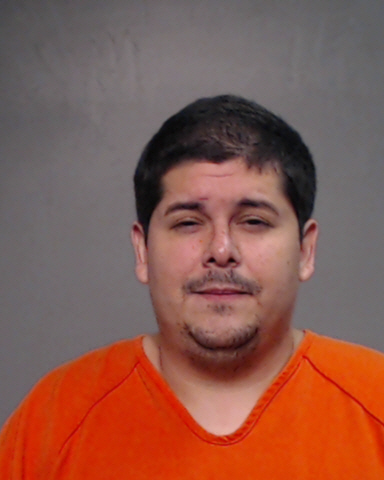A motion for a new trial filed by a man serving a 20-year sentence for a “sudden passion” murder sheds light into why the jury believed it was not a case of self defense.
A little more than a month ago, state District Judge Fernando Mancias ruled that 33-year-old Fabian Paredes’ daylight shooting of 27-year-old Joshua David Sanchez at a traffic light at the intersection of 10th Avenue and West McIntyre Street, just outside the Hidalgo County Courthouse, was a crime of “sudden passion” and sentenced him to 20 years in prison.
Mancias’ ruling dropped the charge against Paredes down to a second-degree murder from a first-degree murder, which is punishable by up to life in prison without parole. The punishment range for second-degree murder is two to 20 years.
The jury convicted Paredes after a week-long trial that followed six hours of deliberation.
Prosecutors alleged that Paredes, blinded by road rage, shot and killed Sanchez in anger while his defense attorneys present self defense arguments, saying during closing arguments that Paredes feared for his life when Sanchez made a sudden movement that he thought was a gun while the two cars were parked at that traffic light.
According to Paredes’ motion, a poll of the jury revealed why they didn’t believe the self defense argument.
“When the jury was polled by counsel for the Defendant and attorney for the State, the jurors pointed out that Defendant’s vehicle was not boxed in at a green light and that he could have fled from the alleged victim in this case,” the motion states.
Paredes, who filed the pro se motion for a new trial, argues the jurors misapplied the law when determining that he had a duty to flee.
“The law in Texas is clear, and a Defendant need not retreat if his personal subjective belief is that his life or the life of another is in danger and that deadly force is necessary,” according to the motion.
Paredes says the jury’s decision to convict was based on a wrong view of the law.
“The jury based its decision on a clearly erroneous view of the law, namely that Mr. Paredes should have fled the scene and retreated in the face of threats coupled with action by the alleged victim and their decision to convict was against the greater weight of the evidence,” the motion stated.
During the trial, however, jurors also heard evidence of how Paredes and his wife — who he alleged he was protecting during the shooting — fled to South Padre Island. The couple was arrested a week after returning from the Island.
Jurors also heard how video evidence on a dash cam inside Paredes’ vehicle from the time of the shooting was missing and how one expert witness testified that the only way for that evidence to be missing was for someone to delete it.
Mancias, the presiding judge in the case, has not yet made a ruling.




